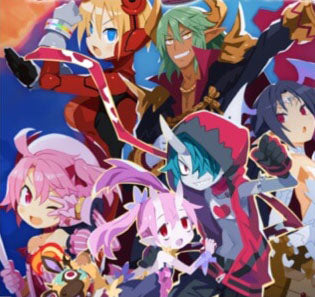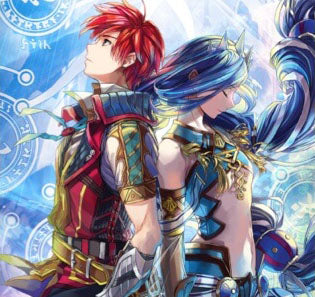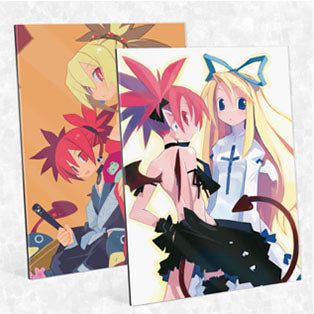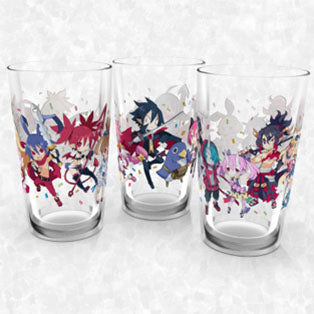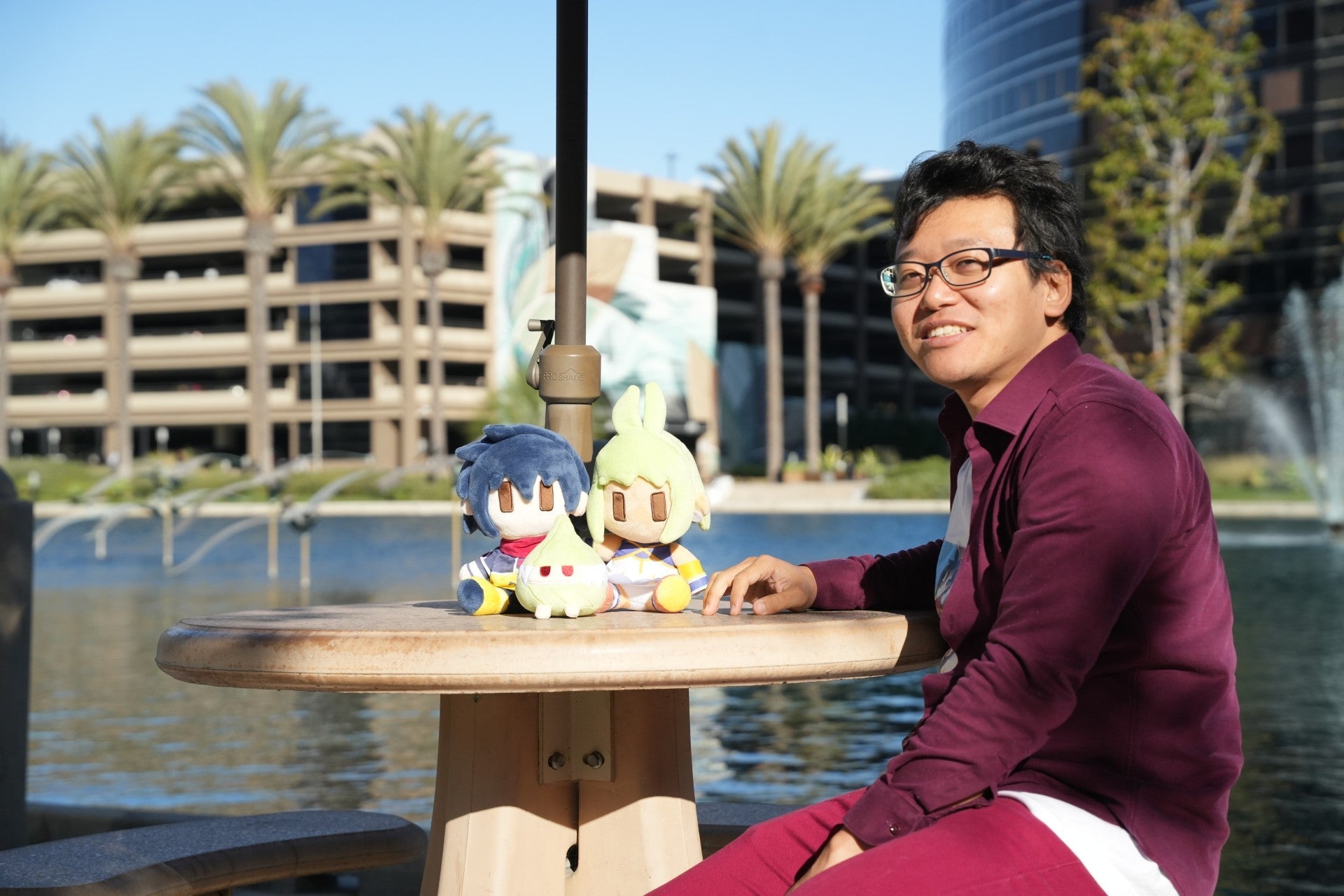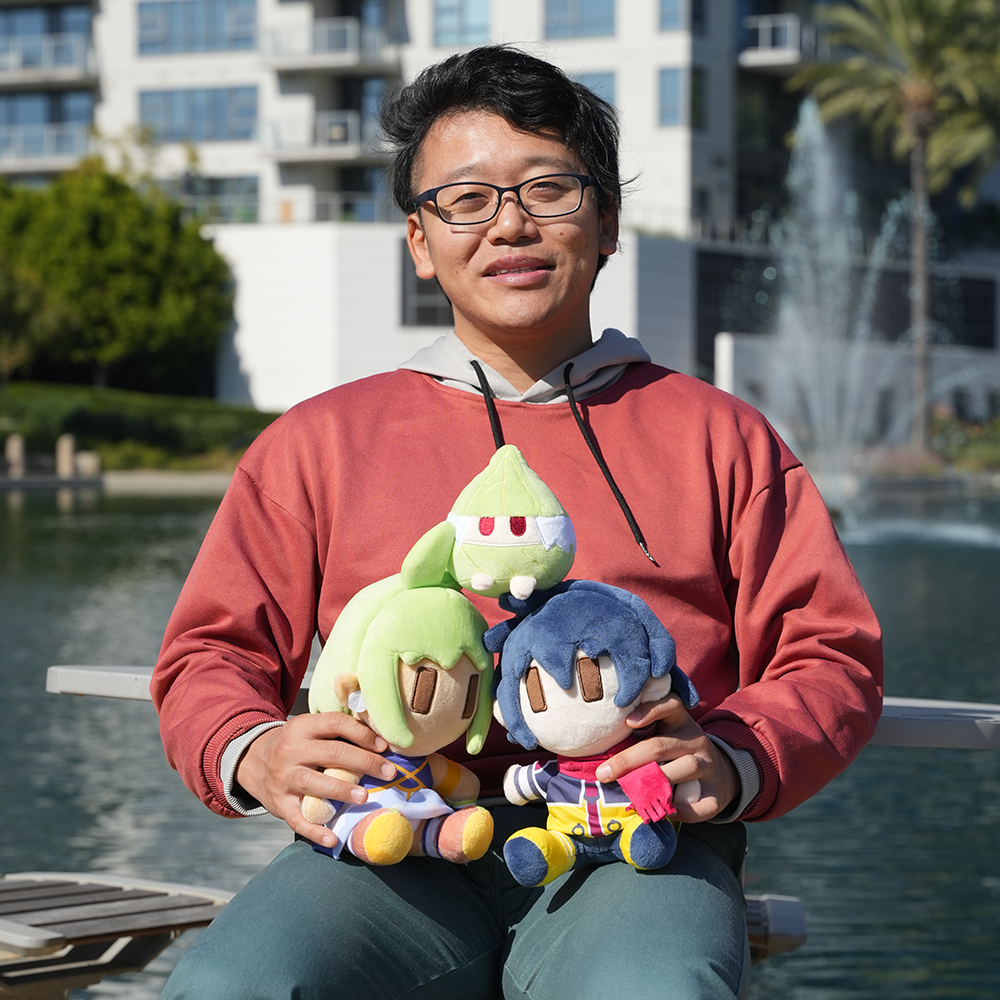This is Vol. 2 of a three-part interview series with Phantom Brave: The Lost Hero Scenario Writer Kento Jobana. Vol. 1 is available here.
ーTwo of the titles that you have worked on, Disgaea 7: Vows of the Virtueless and Phantom Brave: The Lost Hero, are both strategy RPGs. I’d like to delve a little deeper into the topic of strategy RPGs. Strategy RPGs consist of the “strategy” aspect and the “RPG” aspect. Without the story aspect, there are “strategic simulators” or “tactical games.” What benefits does adding the “RPG” aspect lend to these games?
This is just my personal opinion, but I think one of the defining characteristics of tactical games is that the player is forced to work with the limited resources given to them, rather than strategy RPGs where the player can power up their units as much as they like. If they make a mistake in managing things somewhere, they won't be able to beat the game.
In contrast, I think that strategy RPGs–particularly Nippon Ichi Software, Inc.’s strategy RPGs–have that “RPG” aspect that means the player can level up their units and keep trying. Even in situations where the player might get stuck, like in a tactical game, they can level up their units and then use those increased stats to win. I think that this is the largest difference between tactical games and strategy RPGs.
ーIn other words, rather than having the outcome determined entirely by pure strategy, a player can brute force their way through something by raising their levels or stats to continue in the story.
Exactly. For example, with Disgaea, we usually put out a demo well before release, and there are players who reach level 9999 in the demo and then just blow through the story when the game launches.

ーSo then, what about strategy PRGs in contrast to general RPGs?
Strategy PRGs have the tendency to have less exploration compared to RPGs. In most RPGs, the player moves the character, travels to various towns, and fights enemies. For strategy RPGs, the flow is to task the player with various battle conditions and missions in order to beat the game. I think it’s a genre where the player can focus their enjoyment on fighting and raising their characters' levels.
ーThat’s true; in normal RPGs, the player has to figure out where to go next.
Right. So, that means for normal RPGs, the battle system is there to assist the player with enjoying the story. In contrast, I think the combat system itself is one of the big appealing factors for strategy RPGs.
Another unique aspect of the strategy RPG subgenre is how there are usually many playable characters due to how important positioning multiple units on the map is in combat.
For example, some Disgaea fans like to use generic units or characters without names and come up with their own backstories for them. I think this type of enjoyment is possible because of what strategy RPGs offer.
ーThat’s true; you often see fan works about characters in RPGs who are involved in the story and have lines of dialogue, but not so many that use “Villager A” or characters like that.
There are players who think up stories and write novels about the generic units that they created themselves, and I think that's really interesting. Strategy RPGs are definitely a unique genre.
ーIn Phantom Brave: The Lost Hero, the combat system uses the unique Confine command. It is certainly a system made with a lot of care. Do you feel that more players are looking forward to combat, or to the story?
I feel that it’s probably half and half. Even though there are definitely those looking forward to raising their character levels, many of them also want to enjoy the story. I don't think too many people are placing more weight on one aspect over the other.
Phantom Brave: The Lost Hero Limited Edition
For us on the development side, we took equal care with both the combat and the story and made sure not to neglect one or the other.
ーThere are many different types of players out there. There are some who place the most emphasis on the strategic elements and find the story irritating, while, on the other hand, there are those who enjoy the story, but find the combat difficult. Looking at these two opposites, it feels like there is a small dilemma here. What do you think is the solution to this issue?
Our goal is to have the story be able to be completed in about 30 hours for the Disgaea games, and it’s made so that even those who aren’t very good at the games can beat them without too much difficulty.
For those players who want to focus on combat, we have a story scene skip feature so that they can skip the story scenes if they choose. However, even with that, we still heard from people that said Disgaea 7: Vows of the Virtueless’ difficulty level was too high, or that they wanted us to make it easier. Due to that, for Phantom Brave: The Lost Hero, we’ve brought that hurdle even further down so that the combat difficulty level is lower than that of Disgaea.
ーThat’s right, there’s also an Easy Mode targeted at beginners, isn’t there?
Yes. We have both an Easy Mode, where the enemy stats are halved, as well as a mode that makes enemies even weaker. I think players who may have found combat difficult in Disgaea will be able to enjoy Phantom Brave: The Lost Hero.
ーWhat do you think are the characteristics of strategy PRG fans versus those who like action RPGs or turn-based RPGs?
I think the biggest characteristic of strategy RPG gameplay is the speed. One of the enjoyable aspects of strategy RPGs is that you can think slowly and carefully about your unit positioning.
For example, in action RPGs, the fun is in the movement, and for turn-based RPGs, there’s the joy of leveling up. In contrast, since the goal is to take control of the playing field in strategy RPGs, I would recommend them most to players who like to think carefully about character positioning and strategy.
Stay tuned for Vol. 3 of this exclusive interview with Phantom Brave: The Lost Hero Scenario Writer Kento Jobana!

